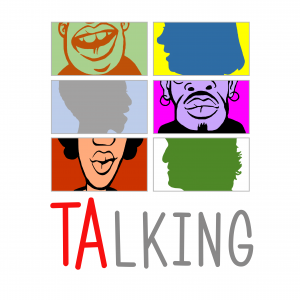IFREP 93 is partner of the project TALKING (Transactional Analysis Learning for Keeling over the Intercultural Gap) – KEY ACTION 2 – STRATEGIC PARTNERSHIPS in partnership with Ro.Ma. Consortium and CPIA3.
The Erasmus Plus program aims to achieve the strategic goals of the plan 2020, focusing on cooperation in education and training.
The Strategic Partnership is intended to develop, transfer and implement innovative practices, joint actions to promote collaboration, learning at par and the exchange of experience at European level.
The project was inspired by the articles published by Epale, electronic platform for learning adult in Europe funded by the European Commission, on the difficulties that teachers of training courses for adults find in dealing and carrying out their work with people from different cultures
IFREP 93, according to its mandate of training of health workers, wanted to take up the challenge of the discomfort associated with the migration phenomena. Many European countries welcome immigrants with stories and traumatic experiences and are in the difficulty of integrating these people into the society. The European Community has among its goals to support and invest resources to facilitate the integration of migrants into the host country by acquiring knowledge and skills and to cooperate in a social integration that respects the different cultures of belonging.
Migrant education is characterized by distinctive features such as, for example, communication difficulties due to the lack of knowledge of the language or low acculturation. This activity requires specific skills by teachers / trainers who teach immigrants often very manual and technical subjects. Moreover, in many cases, the traumatic experience of learners is another obstacle to effective teaching activities. The teacher’s job is extremely stressful due to different aspects: the time of the classes, often in the evening, the subjects taught, etc. Therefore, it is crucial to teach effectively taking into account the cultural differences and the importance of building good and respectful relationship among the trainees in order to facilitate their well-being.
The project aims at updating the skills of teachers involved in the training for immigrants with the use of Social-cognitive Transactional Analysis (SCTA). Through a series of theoretical and practical exchange teachers will learn to read the individual and interpersonal behaviour characterized by discomfort, to have decoding and intervention tools which enable the creation of intercultural integration processes in heterogeneous group-classes. The project includes the following activities to be developed in two years, from September 2016 until June 2018.
With respect to the teacher:
- Identification and definition of innovative training content: the partners will adapt the model of Social-cognitive Transactional Analysis to the specific needs of educators and local contexts of each participant (also taking into account the particular shape of migrant classes and the educational system of the State concerned).
- Systematization of educational content in a short route, about 56 hours.
- Providing training through a training join-staff event lasting approximately 7 days in which psychotherapists experts in the SCTA model and educators will share and facilitate learning skills identified through a mainly based practical training
- Experimentation of the training and knowledge acquired. During this phase, the educators apply the knowledge gained in dealing with their migrant learners in their local areas.
- Assessment and training action monitoring and testing and collection of feedback from educators.
- Any change and / or update of the training program, if deemed necessary following the previous evaluation.
Definition of guidelines on SCTA model applied to the teaching of migrant people.
Than creating a web community platform:
• a web community platform will be created where it will be published all the material produced in the 2 years, after the activity of dissemination that all partners are committed to produce. This material will be used free of charge (taking into account respect for intellectual property) to all teachers / trainers who will also want to consult it even after the end of the project.
Talking’s steps:
Rome, October 27-28, 2016 Rome, November 27, 2016 Rome, February 13, 2017 Rethymno-Crete (GR), March 3-4, 2017 Liverpool (UK), June 8-9, 2017 Bologna, June 17, 2017